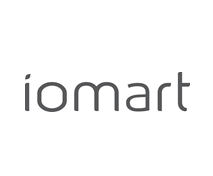- A quarter (25%) of UK employees have admitted to allowing their children to use their work device for homeschooling, causing cybersecurity concerns.
- iomart conducted a YouGov survey to highlight the continuing security risks due to remote working, including passwords, device sharing and social media.
- Device sharing may leave workers vulnerable to cyberattacks, as the blurring between personal and work use results in inadequate security provisions.
- Neil Christie, Chief Operating Officer at iomart, urges businesses to prioritise device security and employee training as remote working looks set to continue past the pandemic.
A new survey reveals a quarter (25%) of UK workers allow children to use their work device for home schooling, which has major security implications for their employers.
The YouGov survey of 2025 employees, commissioned by iomart, investigated the ongoing security risks faced by businesses following the shift to home working during the pandemic, and looked at key areas of concern like sharing of devices within households, password hygiene and how social media was accessed.
The survey found businesses are forgoing the usual levels of due diligence and security considerations due to an immediate focus on remaining operational while working remotely.
Remote workers with children are allowing their family to use their work devices for online activities, including home schooling, homework and socialising with friends – including gaming.
But this leaves workers vulnerable to hacking, as a blurred line between professional and personal device use means businesses cannot ensure the use of key security elements, including managed network access, gateway firewalls and a secure cloud environment.
As well as using their work devices for personal use, employees were also identified as having poor password security, as almost three quarters (74%) of those surveyed stated they didn’t use different passwords for everything, despite security recommendations.
Neil Christie, Chief Operating Officer at iomart, says: “While it’s understandable that the lines have been blurred between personal and business use when it comes to work devices – due to home schooling, childcare and an increased need to stay social online – this has key security implications that need to be addressed.
“This change in behaviour patterns, particularly in a busy home, makes the corporate environment more vulnerable to a security breach. Consultation and guidance around security matters should now take precedence as remote working is going to play a much bigger part in the life of every business.
“This includes addressing the highlighted risks that result from seemingly innocuous everyday behaviours in the home. As well as device sharing, these risks include using common passwords across multiple systems and lack of control over access to certain applications or social media.”
Cyber risks have come into sharper focus during the national lockdown with many employees working from home, and with an increase in remote working set to continue after pandemic restrictions ease, the need for heightened attention around device security and employee training remains a priority.
In order to strengthen their at-home security, businesses require a comprehensive audit of their current working practices to identify any areas of vulnerability, and look to schedule frequent audits on a consistent basis to ensure risks are constantly monitored.
This is particularly important for organisations that handle a wide breadth of sensitive data, such as those in the medical and health sector – a sector the survey identified as demonstrating poor password security practices.
To find out more about the security implications of working remotely, please visit: https://www.iomart.com/cybersecurity-remote-working/

